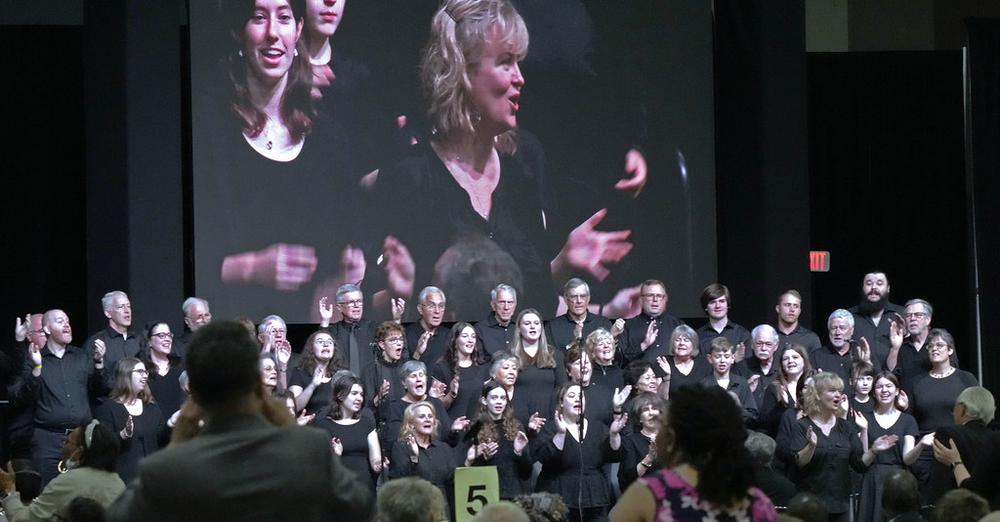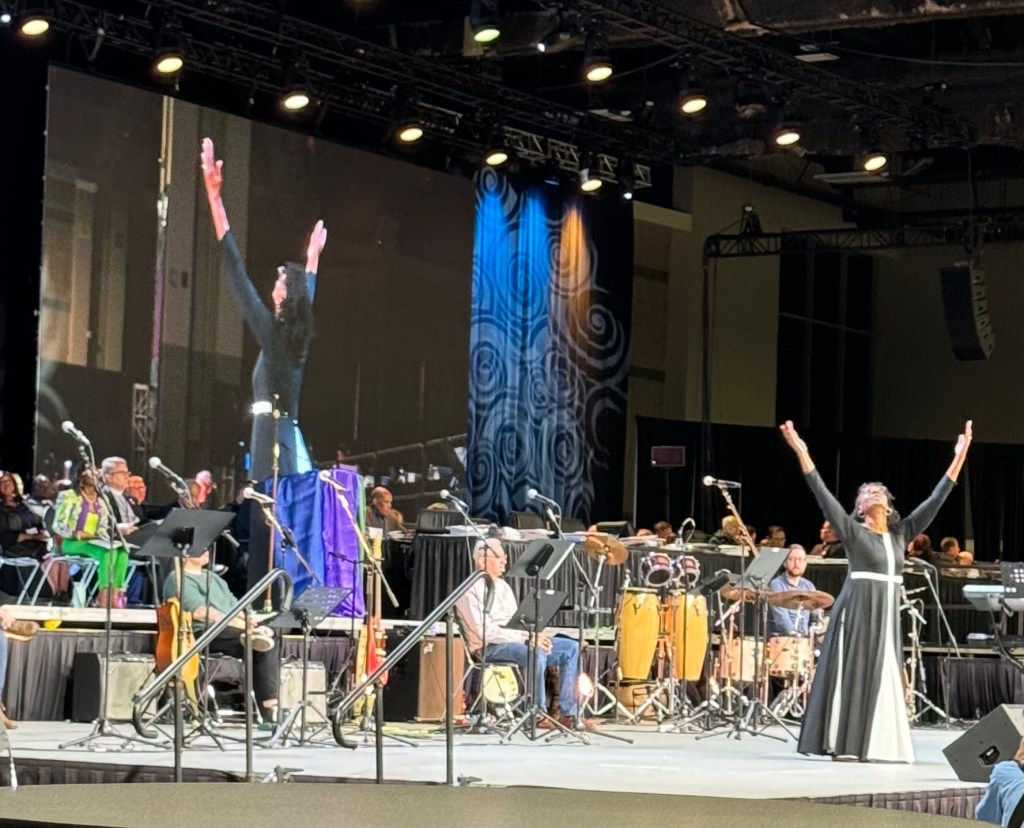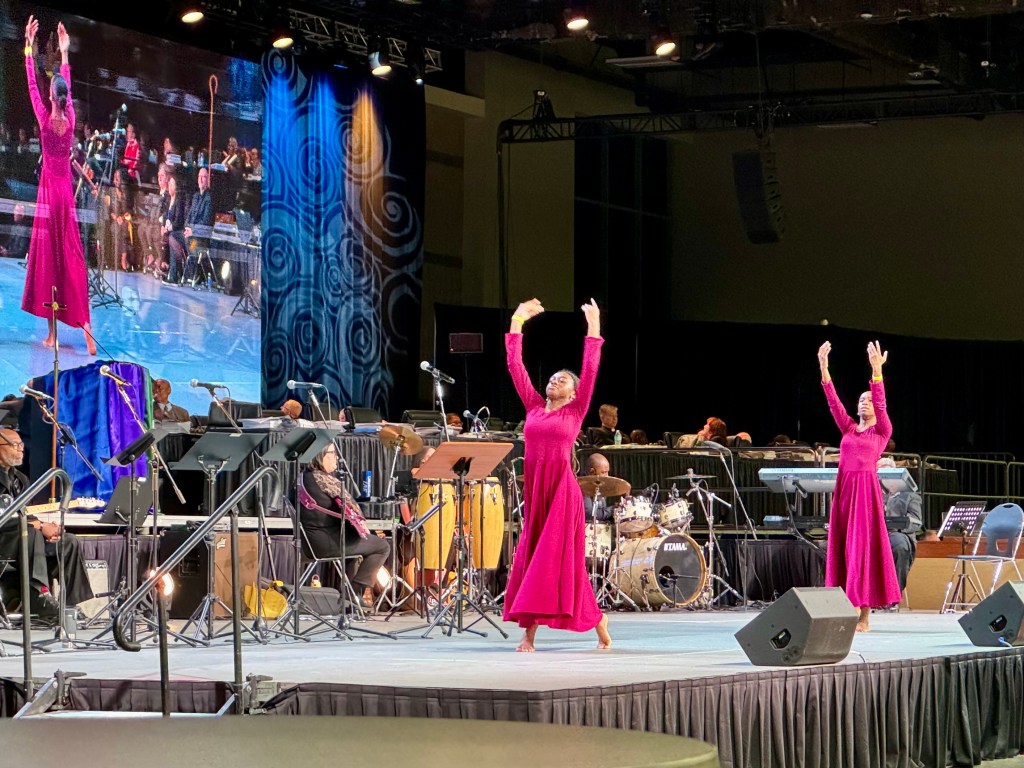
“God is our refuge and strength, a very present help in trouble. Therefore, we will not fear—though the earth should change, though the mountains shake in the heart of the sea…”
Psalm 46:1, 2
The final day of General Conference has arrived.
During morning worship, Bishop Tracy Malone offered to us a richly provocative sermon focusing on the steadfastness of God’s grace, dynamically at work even as we steward the anxiety of living into the historic changes we have initiated at General Conference and interpreting those changes to different kinds of churches. In her preaching, Bishop Malone powerfully reminded us that how we go forth from General Conference matters:
“By the end of today, we will have conducted the church’s business and engaged in two weeks of holy conferencing. But so what?! What now?! General Conference will only have meaning if we go forth trusting in the God who is our refuge and our strength. General Conference will only have meaning if we commit ourselves to showing up courageously in places of pain and poverty, suffering and sadness, injustice and injury and offering people Jesus Christ and his love. How we go matters. How we show up matters. How we love matters.”
How we go matters. Indeed, it does. It matters after General Conference, and after every Sunday worship service in a local church, and after every meeting or gathering of Christ-followers who are endeavoring to remain faithful. How we go matters.
Our long plenary session today involved caring for 27 petitions, all of which needed to be acted on in some fashion before the conclusion of General Conference. In our actions related to those petitions, we approved, among many other things, a greatly reduced 2025-2028 denominational budget. We also voted to set the number of U.S. bishops at 32, meaning that there will be no new bishops elected at this year’s Jurisdictional Conferences.
We also made two changes to the Book of Discipline that I believe to be particularly noteworthy:
1. We removed the language from Disciplinary paragraph 341.6 that prohibited United Methodist clergy from officiating at same sex weddings and United Methodist Churches from hosting such services.
2. We added language to Disciplinary paragraph 340.2 that makes very clear that clergy cannot be compelled or required to officiate at any wedding that goes against their conscience or their theological convictions.
I see these actions as liberational in two different ways. First, because of action number one, United Methodist clergy and congregations are now liberated to conduct and host same sex weddings (if they so choose) in those contexts where such ministry is missionally urgent. And second, as a result of action number two, United Methodist clergy are liberated from any requirement to act against their theological convictions concerning the officiation of a wedding.
We concluded our plenary session at 6:30 this evening. Shortly thereafter, following a time of prayer, Bishop Malone declared adjournment.
I am tired, friends—emotionally, spiritually, and physically. Tired, and eager to be in the presence of my beloved.
In my tiredness, I am also proud of the United Methodist Church and the faithful work of the delegates over the last twelve days.
This is my sixth experience of General Conference:
Pittsburgh in 2004.
Fort Worth in 2008.
Tampa in 2012.
Portland in 2016.
St. Louis in 2019.
And Charlotte in 2024.
This General Conference felt like the culmination of what has been, for me, a twenty-year journey alongside the beauty and brokenness, the pain and potential of denominational ministry. This will most likely be my last General Conference. It is time, I think, to entrust this work to other minds and voices who will bless the church in ways that I cannot.
As I have said many times, I remain a United Methodist because I believe that United Methodism gets more things right than any other denomination of the church. Furthermore, I believe that, what United Methodism gets wrong (and there have been many such things), it keeps working, repenting, and reforming until what is wrong is made right.
My personal conviction is that this General Conference righted several wrongs in the church. I was honored to be a part of that work.
Thank you for being alongside me in the pilgrimage.









